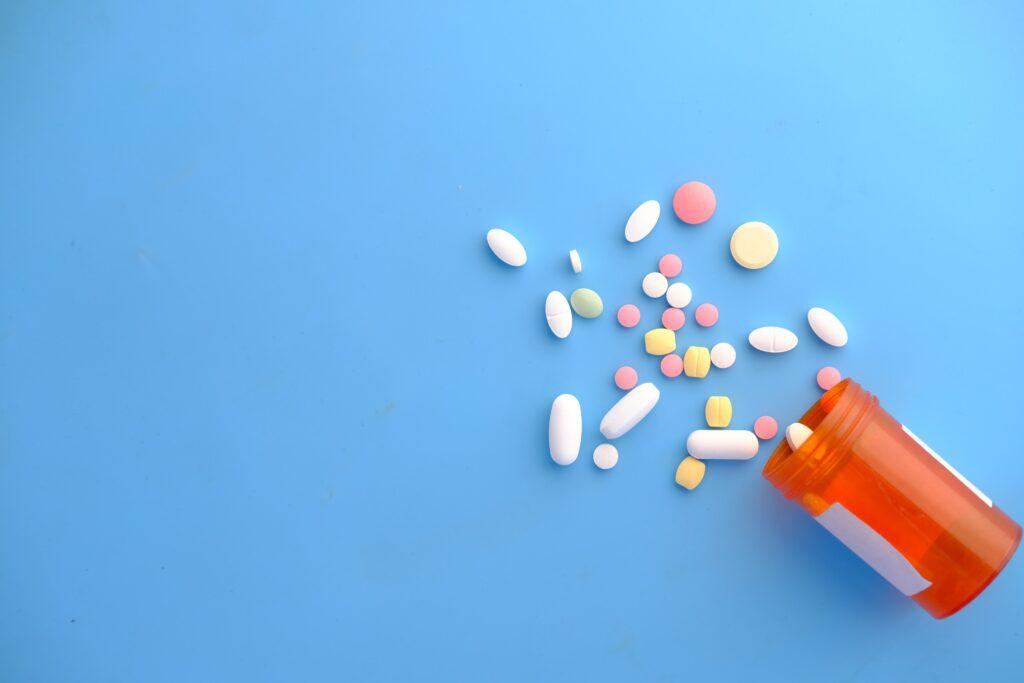Popular Ketamine Drug FAQs
-
What Drug Is Special K?
It is a street name for the drug ketamine. Ketamine is a dissociative anesthetic that is used in human and veterinary medicine. It is also used illicitly as a recreational drug.
-
What is Special K street drug?
This street drug name is a slang term used to refer to Ketamine. It is a powerful anesthetic drug used medically for surgical procedures and pain management. However, it is also used illicitly as a recreational drug due to its dissociative and hallucinogenic effects.
-
What is Special K made of drug?
It is a synthetic compound chemically related to PCP (phencyclidine), another dissociative anesthetic drug. It is typically sold as a white powder or a clear liquid that can be injected, snorted, or smoked.
-
What is the drug Special K?
The drug refers to ketamine, a dissociative anesthetic drug used medically for surgical procedures and pain management. It is also used illicitly as a recreational drug due to its dissociative and hallucinogenic effects.
-
What is Special K drug Stranger Things?
In the TV series Stranger Things, Eleven is given a drug called “Ketamine.” However, the drug portrayed in the show is not ketamine but rather a fictional drug created for the show.
-
What drug is called Special K?
This drug street slang is a term for ketamine. It is a powerful anesthetic drug used medically for surgical procedures and pain management. However, it is also used illicitly as a recreational drug due to its dissociative and hallucinogenic effects.
Ketamine Drug Facts
Comprehensive Ketamine Facts Guide
Ketamine has gained popularity as an antidepressant. But did you know it’s also being researched for its potential impacts on OCD, PTSD, and borderline personality disorder? Ketamine, a powerful drug, has both human and animal applications. Explore the exciting possibilities of this mysterious drug beyond just anesthesia or the dance floor. Our Ketamine drug guide will bring you up to speed faster than a club kid’s heart rate.
Ketamine Overview
Ketamine is a medication that is primarily used for anesthesia and pain relief. It is a dissociative anesthetic, which can cause feelings of detachment from reality, as well as profound sedation and analgesia.
Ketamine is also used illicitly as a recreational drug due to its dissociative and hallucinogenic effects. In recent years, it has shown promise as a treatment for depression, particularly in cases where other treatments have failed. However, its use for this purpose is not yet FDA-approved and should only be administered under medical supervision.
Ketamine can have various side effects, including dissociation, hallucinations, confusion, and increased blood pressure. It can also cause damage to the bladder, kidneys, and liver with long-term use.
Side Effects of Ketamine
Using ketamine can cause several side effects, including dissociation, hallucinations, confusion, nausea and vomiting, increased heart rate and blood pressure, increased intracranial pressure, respiratory depression, bladder dysfunction, kidney damage, and liver damage.
Sings and Symptoms of Ketamine Abuse
- Behavioral changes, such as increased aggression or withdrawal from social activities.
- Changes in appearance, such as neglecting personal hygiene or grooming.
- Dizziness, difficulty walking, or unsteady gait.
- Increased heart rate and blood pressure.
- Impaired coordination or balance.
- Mood swings or personality changes.
- Paranoia or delusional thinking.
- Persistent or severe confusion.
- Slurred speech or difficulty communicating.
- Tremors or seizures.
- Use of drug paraphernalia, such as syringes, needles, or pipes.
It is important to note that these symptoms can vary depending on the individual, the dosage, and the method of administration. If you suspect someone is abusing ketamine, seeking help from a healthcare professional or addiction specialist is essential.
Ketamine Abuse Statistics
Ketamine is a powerful dissociative anesthetic that is primarily used in medical settings. However, it is also commonly abused for its hallucinogenic and dissociative effects. Ketamine abuse can lead to various physical and psychological health problems, including addiction, cognitive impairment, and organ damage. In this section, we will explore the prevalence of ketamine abuse in the United States by examining ketamine abuse statistics.
7.8 million
An estimated 7.8 million people aged 12 or older used illicit drugs in the past year, and 0.4% reported using ketamine in the past year.
Source: NSDUH
684 kilograms
The number of ketamine seizures by law enforcement has increased significantly in recent years. In 2018, the DEA reported seizing 684 kilograms of ketamine, compared to 215 kilograms in 2017.
Source: DEA
3,663
In 2020, there were 3,663 emergency department visits related to ketamine use. This represents a 53% increase from the previous year and a 277% increase from 2016.
Source: SAMHSA

Get Your Life Back
Find Hope & Recovery. Get Safe Comfortable Detox, Addiction Rehab & Dual Diagnosis High-Quality Care.
Hotline(844) 597-1011Special-K Drug Physical vs Psychological Side Effects

The drug can cause various dangerous and potentially life-threatening side effects when used recreationally. Here are some of the most common Special K drug side effects:
Physical side effects:
- Nausea and vomiting.
- Dizziness and loss of balance.
- Muscle stiffness and rigidity.
- High blood pressure and heart rate.
- Rapid breathing and shallow breathing.
- Blurred vision and dilated pupils.
- Slurred speech and impaired coordination.
- Seizures and convulsions.
- Loss of consciousness.
Psychological side effects:
- Feelings of detachment from reality.
- Distorted perception of time and space.
- Hallucinations and delusions.
- Panic attacks and anxiety.
- Agitation and confusion.
- Depersonalization and derealization.
- Paranoia and fear.
- Flashbacks and persistent perceptual disturbances.
- Psychosis and delirium.
Long-term Effects of Ketamine:
- Cognitive impairment and memory problems.
- Learning and attention deficits.
- Mood disorders, including depression and anxiety.
- Addiction and dependence.
- Withdrawal symptoms, including cravings, insomnia, and mood swings.
- Damage to the bladder and urinary tract, including inflammation, pain, and difficulty urinating.
- Kidney damage and failure.
- Respiratory problems and lung damage.
- Cardiovascular problems, including heart failure and stroke.
The severity and frequency of the drug’s side effects and long-term effects vary depending on the individual’s age, weight, dosage, frequency of use, and physical and mental health history. Furthermore, combining Ketamine with other drugs, such as alcohol or opioids, can increase the risk of these side effects and lead to more dangerous and potentially fatal outcomes. If you or someone you know is struggling with ketamine addiction or abuse, seek professional help immediately.
First-class Facilities & Amenities
World-class High-Quality Addiction & Mental Health Rehabilitation Treatment
Rehab Centers TourRenowned Addiction Centers. Serene Private Facilities. Inpatient rehab programs vary.
Addiction Helpline(844) 597-1011Proven recovery success experience, backed by a Team w/ History of:
15+
Years of Unified Experience
100s
5-Star Reviews Across Our Centers
10K
Recovery Success Stories Across Our Network
- Low Patient to Therapist Ratio
- Onsite Medical Detox Center
- Comprehensive Dual-Diagnosis Treatment
- Complimentary Family & Alumni Programs
- Coaching, Recovery & Personal Development Events
What Is Drugs Inc Special-K?
“Drugs Inc.” is a documentary TV series exploring illegal drug trafficking and use. One of the series episodes is titled “Special-K” and focuses on the illicit use of ketamine.
The episode delves into the production, distribution, and use of ketamine, its effects on users, and the law enforcement efforts to combat its use. The documentary highlights the growing trend of ketamine abuse in the United States, particularly among young people, and the dangers associated with the drug.
The episode shows how ketamine is illegally obtained, with some individuals acquiring the drug through veterinary clinics or online sources. It also features interviews with individuals who have struggled with ketamine addiction and their experiences of the drug’s effects on their lives.

The documentary explores how ketamine is used recreationally, including its use as a club drug and its popularity among ravers and party-goers. It also examines the potential risks associated with ketamine use, including physical and psychological side effects such as respiratory depression, seizures, and hallucinations.
Overall, the “Drugs Inc.” episode about Ketamine sheds light on the illicit use of the drug and the challenges that law enforcement officials and healthcare providers face in addressing the growing problem of ketamine abuse in the United States.
World-class, Accredited, 5-Star Reviewed, Effective Addiction & Mental Health Programs. Complete Behavioral Health Inpatient Rehab, Detox plus Co-occuring Disorders Therapy.
CALL(844) 597-1011End the Addiction Pain. End the Emotional Rollercoaster. Get Your Life Back. Start Drug, Alcohol & Dual Diagnosis Mental Health Treatment Now. Get Free No-obligation Guidance by Substance Abuse Specialists Who Understand Addiction & Mental Health Recovery & Know How to Help.
We Level Up Ketamin Dual Diagnosis Treatment
The definition of dual diagnosis (also referred to as co-occurring disorders) can differ between institutions. However, it is generally described as the specific treatment of someone diagnosed with a substance use disorder and a mental health disorder simultaneously. Treating dual-diagnosis clients is a critical aspect of our inpatient treatment experience because co-occurring disorders are strongly correlated with instances of substance abuse.
Creating a treatment plan that addresses the physical aspects of withdrawal, the psychological connection with drug use, and managing underlying mental health disorders is part of setting clients up for success. A thorough mental health analysis identifies possibilities for treatment. Meeting with mental health counselors and medical care providers means access to behavioral therapy and medication treatment. At our dual diagnosis treatment center, We Level Up can implement the highest quality of care.
We recognize the fragile complexities of how mental and substance abuse disorders can influence others and sometimes result in a vicious cycle of addiction. That’s why we offer specialized treatment in dual-diagnosis cases to provide the most excellent chance of true healing and long-lasting recovery.
Accepting that you may be living with a mental illness can be challenging. However, treating the presenting substance abuse case can be magnitudes easier once correctly diagnosed and treated. Only a properly trained medical professional can diagnose these underlying conditions. If you believe you are suffering from a disorder alongside addiction, we urge you to seek a qualified treatment center to begin your journey to recovery. Call We Level Up detox center today.
Experience Transformative Recovery at We Level Up Treatment Centers.
See our authentic success stories. Get inspired. Get the help you deserve.
Start a New Life
Begin with a free call to an addiction & behavioral health treatment advisor. Learn more about our dual-diagnosis programs. The We Level Up Treatment Center Network delivers recovery programs that vary by each treatment facility. Call to learn more.
- Personalized Care
- Caring Accountable Staff
- World-class Amenities
- Licensed & Accredited
- Renowned w/ 100s 5-Star Reviews
We’ll Call You
Video of Prescription Drug Abuse Recovery Story
Watch Jen’s inspirational recovery video testimonial.
Search We Level Up Ketamine Drug Resources
Sources
- National Institute on Drug Abuse (NIDA): https://www.drugabuse.gov/publications/drugfacts/ketamine
- Substance Abuse and Mental Health Services Administration (SAMHSA) – Ketamine: What You Need to Know: https://www.samhsa.gov/
- U.S. Drug Enforcement Administration (DEA): https://www.dea.gov/factsheets/ketamine
- Centers for Disease Control and Prevention (CDC) – https://www.cdc.gov/niosh/ershdb/emergencyresponsecard_29750029.html
- Food and Drug Administration (FDA) – https://www.fda.gov/
- National Institutes of Health (NIH) – Ketamine for Depression: https://www.nih.gov/
- Department of Health and Human Services (HHS) – Ketamine and the Opioid Crisis: https://www.hhs.gov/
- National Center for Biotechnology Information (NCBI) – https://www.ncbi.nlm.nih.gov/pmc/articles/PMC4458540/
- Office of National Drug Control Policy (ONDCP) – https://www.whitehouse.gov/
- National Library of Medicine (NLM) – Ketamine Hydrochloride: https://medlineplus.gov/





